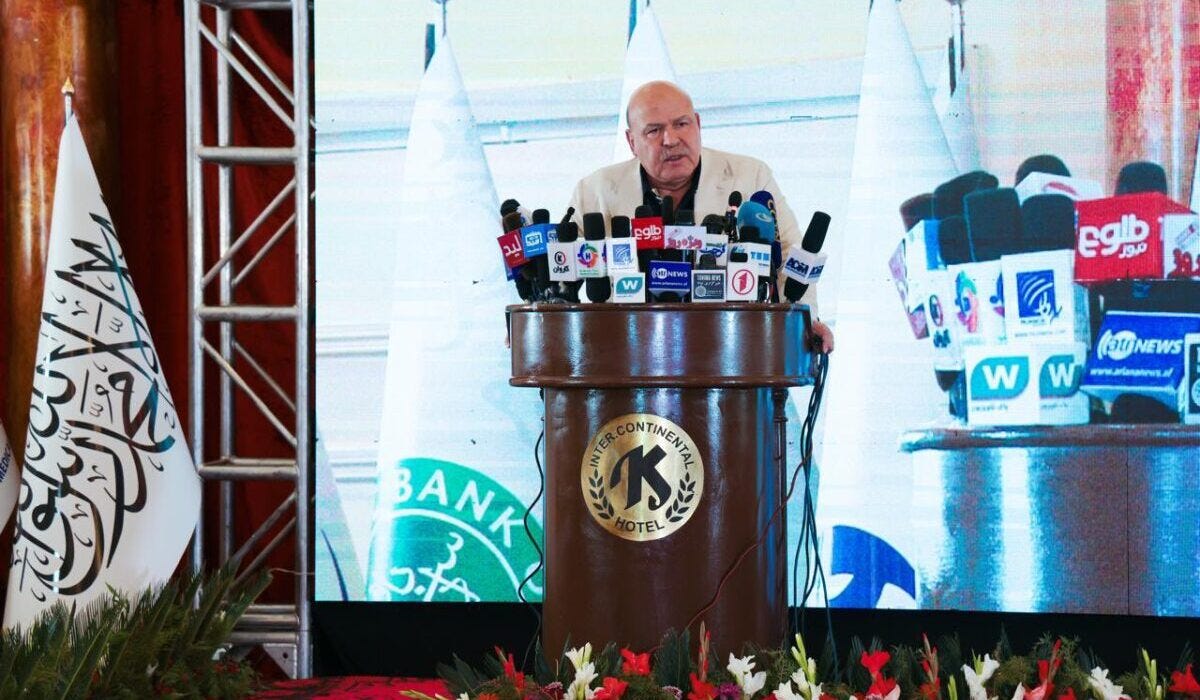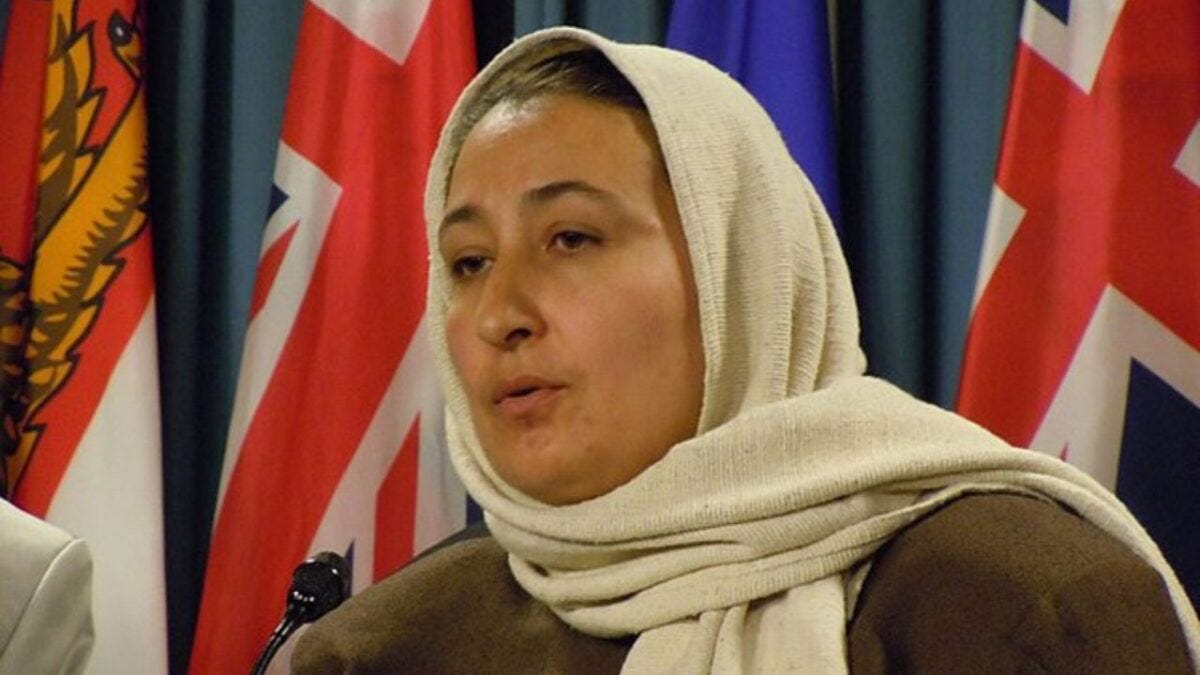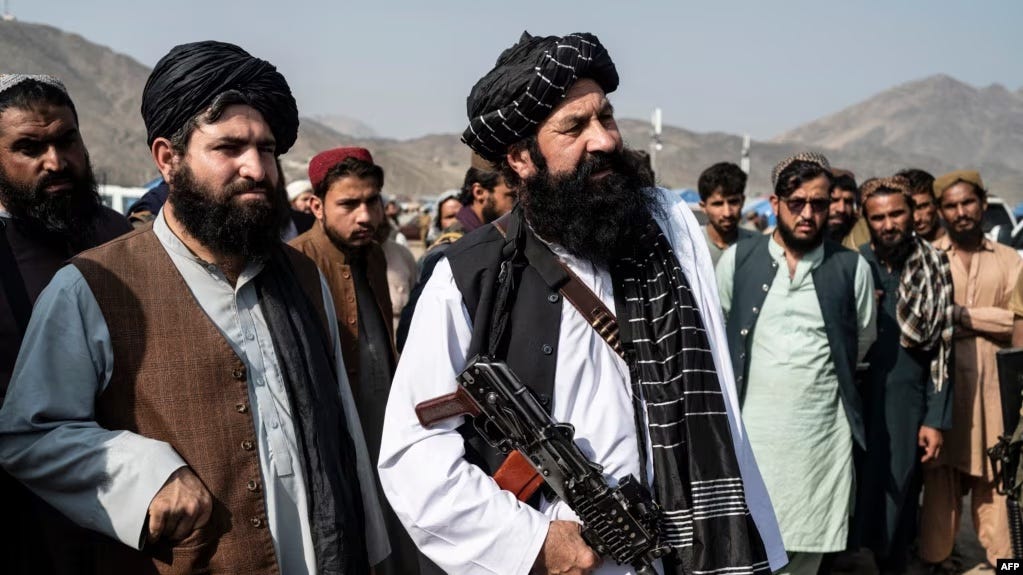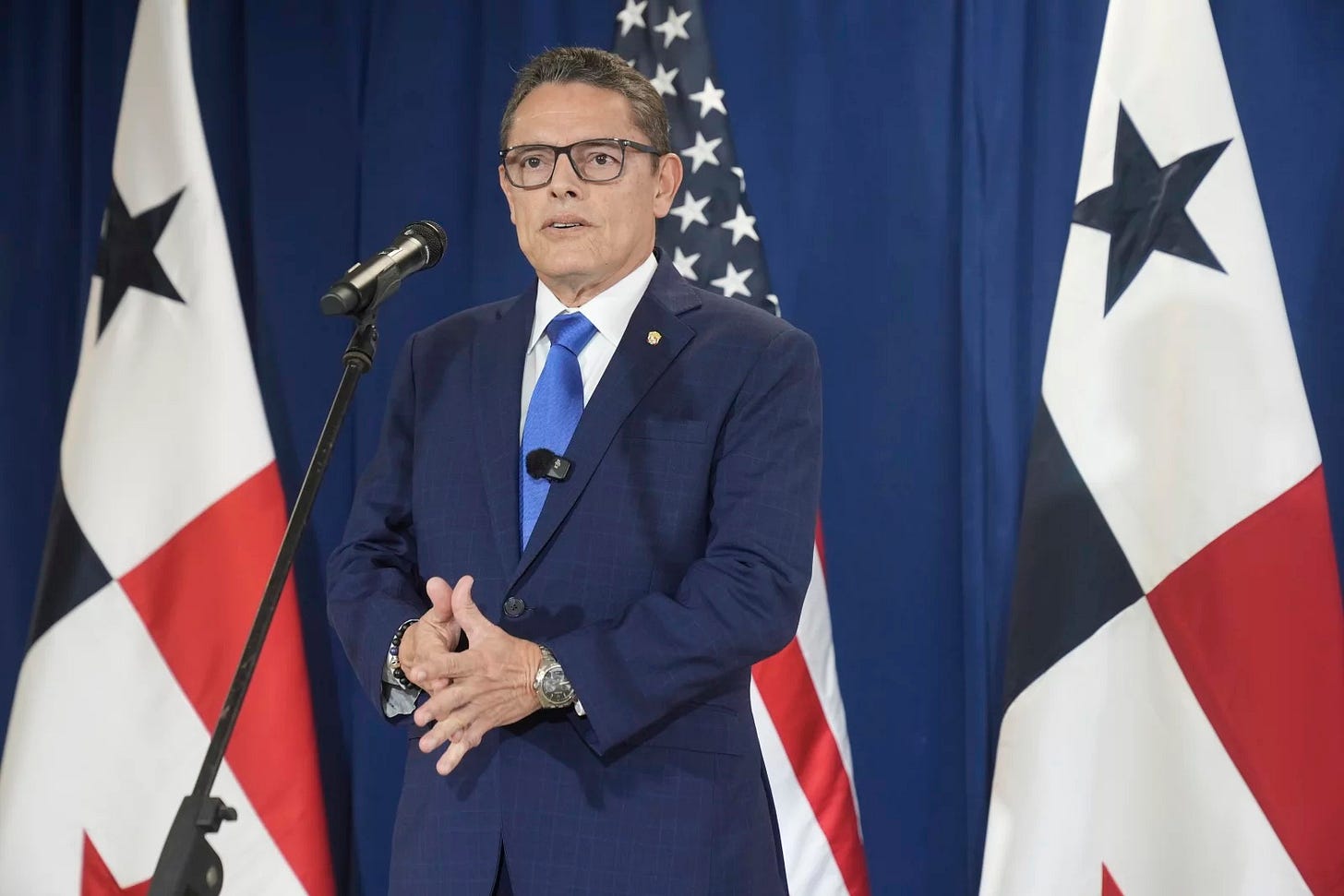The Week of February 17-23
Security and Conflict
Explosion at KIA – On Monday, at approximately 4:00 PM, an explosion occurred near Kabul International Airport in PD 15. Residents reported a loud blast, but details regarding the cause, casualties, or damage remain unclear. Taliban authorities have yet to comment on the incident.
Cross Border Fighting – Since Sunday, clashes between Pakistani forces and the Taliban have been ongoing in Mohmand Khwazai (Khyber Pakhtunkhwa) and Yaquobi (Nangarhar), with fighting resuming at noon on Tuesday. On Wednesday, the Taliban attacked a Pakistani border post in Sasobi Kandao, killing one soldier and injuring another. In retaliation, Pakistani forces destroyed a Taliban post, reportedly causing heavy casualties. Both sides used heavy weaponry, and although gunfire has ceased, tensions remain high.
Taliban Arrest Infiltrator in Baghlan – This week, sources reported that a covert ISKP operative, serving as head of CID for PD 1 in Pul-e-Khumri, Baghlan, was arrested for plotting an attack on the PD 1 police chief. Reports state that he had previously supported the Taliban but recently switched allegiance to ISKP. He was caught planting a bomb inside a stove in the police chief’s office and confessed during interrogation to being an ISKP member.
Human Rights and Civil Liberties
British Humanitarians Arrested – On February 3, Peter (79) and Barbie Reynolds (75), a British couple with deep ties to Afghanistan, were arrested by the Taliban in Bamyan province. They had been running educational centers for 18 years and chose to remain in Afghanistan after the Taliban’s 2021 return to power. Initially, they informed their children of their detention but went silent after three days. The Taliban searched their home and interrogated staff over alleged religious promotion, though the couple’s family denies any such activities. The Taliban has yet to comment on the arrests.
Activist Detained – On Tuesday, local sources confirmed that civil society activist Enayatullah Batash was detained and beaten by the Taliban in Kunduz, allegedly in front of his wife and children. The reason for his arrest remains unclear, and the Taliban have not issued a statement on the incident.
Floggings – On Monday, the Taliban flogged nine people in Ghazni and Takhar. On Thursday, three men and one woman were flogged in Kabul. On Saturday, a man and a woman were flogged in Ghazni, while another woman was flogged in Herat. On Sunday, one person was flogged in Takhar.
House to House Searches in Sar-e Pul – On Sunday, the Taliban's Ministry of vice and virtue conducted house-to-house inspections in Sar-e-Pul Province allegedly to confiscate women's makeup products, citing enforcement of Islamic law. Following the public salon ban, many women worked as home hairdressers, but these inspections aim to halt such activities.
Internal Politics
Continuing Rumors of Internal Divisions –Several reports suggest that Serajuddin Haqqani has not returned to Afghanistan for over a month, despite Taliban claims. Sources indicate dissatisfaction with Mullah Hibatullah Akhundzada’s unilateral decisions, including transferring military forces to Kandahar. Haqqani remains in the UAE, while Mullah Baradar is in Qatar for medical treatment. Their prolonged absences have fueled speculation of growing internal divisions within the Taliban, though it remains unclear whether these travels indicate a deeper power struggle.
Emergency Meeting held in Kandahar – On Tuesday, an emergency Taliban meeting was held in Kandahar, chaired by Mullah Shirin and attended by governors from four southern provinces. Discussions focused on ISIS threats in the spring, securing routes to Pakistan, and maintaining internal Taliban unity. Efforts to curb drug trafficking and monitor NGOs were also emphasized. The Helmand governor warned of armed groups in Bahramcha. Security measures in Kandahar have intensified in recent days, reflecting growing concerns over regional stability.
International Developments
Trump Administration Considers CARE Shutdown – The Trump administration has directed the office overseeing Afghan resettlement efforts to prepare for a possible shutdown by April. While no final decision has been made on the Enduring Welcome program, managed by the State Department’s Office of the Coordinator for Afghan Relocation Efforts (CARE), current policies have paused flights for Afghans to third-country processing locations and halted refugee case processing. Advocates warn the shutdown would abandon vetted Afghans awaiting relocation in countries such as Albania, Qatar, and Pakistan. Veteran groups and refugee advocates are urging the administration or Congress to intervene. Notably, SIV processing continues despite the lack of flights to third countries.
Vienna Conference – On Tuesday and Wednesday, the 5th Vienna Process Conference for a Democratic Afghanistan convened in Austria with around 90 participants, including key anti-Taliban figures such as Ahmad Massoud, leader of the NRF, and Yasin Zia, leader of the AFF. The conference aimed to finalize the Vienna Process Roadmap, outlining Afghanistan’s future political structure, international relations, human rights, and economic policies. A significant outcome was the establishment of a 19-member commission to implement the roadmap, propose crisis resolution strategies, and develop inclusive political structures. Participants called on the international community, regional actors, and pro-democracy governments to support efforts toward a transitional government, emphasizing that Afghanistan’s current situation is unsustainable and requires urgent change. More information can be found here
OCHA Report On Afghanistan Released – On Tuesday, OCHA reported that the Taliban had detained 34 aid workers, with 15 still in custody, and suspended 56 humanitarian projects due to interference in aid operations. In January 2025, 127 aid-related incidents were reported, with the Taliban responsible for 83%. Restrictions included staff data demands, bans on female participation, and project delays, severely impacting aid distribution. The U.S. aid suspension has further halted relief efforts, while the UN warns that 22.9 million Afghans will need assistance in 2025, requiring $2.24 billion in funding. Taliban-issued directives continue to obstruct humanitarian operations.The full report can be accessed here.
Regional Developments
Iran- Russia-Afghanistan Conference Held – On Monday, the Iran-Afghanistan-Russia conference on regional security took place at Allameh Tabataba'i University. Experts emphasized Afghanistan’s strategic role and highlighted the need for Iran-Russia cooperation on extremism, economic crises, and Taliban policies. Iran’s Deputy Foreign Minister rejected artificial geopolitical changes and stressed regional collaboration for security. The event focused on Afghanistan’s impact on neighboring countries and strategies for peace and stability.
Mullah Baradar Travels to Uzbekistan – On Saturday, Mullah Baradar traveled to Uzbekistan to strengthen economic ties, proposing the use of national currencies in trade during talks with Uzbek Deputy Prime Minister Jamshid Khodjaev. Discussions addressed facilitating banking transactions, expanding trade, and advancing infrastructure projects such as the Afghan-Trans railway. Baradar also called for easing visa restrictions, streamlining customs, and attracting Uzbek investment. Both sides agreed to establish technical committees to implement joint economic initiatives, with Uzbekistan pledging continued cooperation.
India In Talks to Hand Over Embassy to Taliban – India and the Taliban are nearing an agreement to hand over Afghanistan’s embassy in New Delhi to Taliban control. India might resume full diplomatic activities in Afghanistan, with the Taliban ensuring security. This shift follows regional geopolitical pressures involving Russia, China, and the US. Despite past controversies, including diplomatic closures and smuggling allegations, both sides seem motivated to engage, though official reactions remain pending.
Iran and Taliban Reach Banking Agreement – On Thursday, Iran’s Central Bank announced that Iran and the Taliban had agreed to strengthen banking and financial cooperation to facilitate trade and economic exchanges. The deal was reached in Yekaterinburg, Russia, during a meeting between Iran’s Central Bank Governor Mohammad Reza Farzin and Afghanistan’s Noor Ahmad Agha. Both sides emphasized enhancing financial mechanisms to boost trade as the Taliban seeks stronger economic ties amid banking restrictions and financial isolation.
Miscellaneous
World Bank Report on Afghanistan Economic Situation – The World Bank reports that Afghanistan’s economy remains fragile due to financial isolation, political instability, and currency depreciation. The afghani lost 12% of its value over three months, despite a $100 million intervention. Imports rose by 40%, while exports fell by 19.5%, worsening the trade deficit. Iran remains Afghanistan’s largest trade partner, accounting for 30% of trade. The World Bank urges economic reforms, warning that 22 million Afghans remain aid-dependent amid a worsening humanitarian crisis.
Confirmed Case of Polio in Badghis – On Saturday, Taliban health officials in Badghis confirmed the province’s first polio case of the year. Mohammad Yousuf Najmi, Director of Mass Immunization, announced on February 23 that the virus had been detected in a five-year-old girl from Qoroto, Bala Murghab district. Last year, only one environmental case was reported in Qala-e-Naw, the provincial capital.
NEXT WEEK
House-to-house searches and raids will continue, particularly in major cities. All Afghans are urged to remain compliant with visa and No Objection Certificate requirements.
Detentions, deportations, and anti-Afghan sentiment remain high in Iran. Stay aware of your surroundings and exercise caution at all times. Individuals with ties to the former government should be especially cautious if deported from Iran or Pakistan, as they are particularly vulnerable to detention by the Taliban upon return.
This week, house-to-house searches have begun in Khair Khana, Kabul. Checkpoints and searches are likely to continue, especially in minority-populated areas of Kabul and cities across Northern Afghanistan. These operations are also expected to target former government officials and individuals suspected of ties to resistance forces, often under the pretense of counterterrorism or morality enforcement. Further attacks by resistance forces are likely this week, particularly following the Vienna conference and in the lead-up to Ramadan.
In the U.S., all Afghans should remain aware of their legal rights regarding ICE enforcement and ensure they carry proper documentation at all times. New resources are available for those in the U.S.: assistance with parole can be accessed here, resources for recent SIV arrivals here, and support for recent refugee arrivals here.
Those with issued SIVs can currently self-fund travel to the U.S.; however, pauses in resettlement benefits due to staffing cutbacks mean no assistance will be provided for securing housing or completing forms necessary for accessing medical care, food benefits, or school enrollment for children. Support from friends and family in the U.S. will be necessary when relocating.
REGIONAL ROUNDUP
IRAN
Detention of Afghans Continue – Iranian security forces detained 152 Afghan migrants in the Hermand district of Sistan and Baluchistan province as part of a crackdown on “illegal” foreign nationals, according to Iranian state media. The operation also led to the arrest of one thief, five drug addicts, and eight suspects, along with the seizure of vehicles and narcotics. This follows the recent detention of 200 Afghan migrants on Qash Island, raising growing concerns over the treatment of refugees in Iran.
Iran Executes Two Afghans – On Saturday, Iranian authorities executed two Afghan nationals. The details surrounding their cases have not been disclosed, fueling concerns over due process and the treatment of Afghan detainees in Iran.
Iran to Stop Extending Census Cards for Afghans – Iran will stop extending census registration documents for Afghan migrants, with current permits expiring by year-end, according to a senior Interior Ministry official. While those in designated jobs may stay, undocumented individuals must leave. A new residency document will be introduced next year. Nearly 99% of migrants hold Amayesh cards, allowing legal work with permits. Afghan migrants must return and re-enter legally via passports and visas.
PAKISTAN
Torkham Closed – The Torkham border crossing between Pakistan and Afghanistan was closed on Saturday and remains closed on Sunday following a dispute over the construction of a new Afghan Taliban checkpoint. Pakistani officials ordered construction to stop, but the Taliban refused, prompting the shutdown. The closure, which affects both travel and trade, could disrupt commercial activity and increase tensions. Taliban officials have advised travelers to avoid the route until further notice.
Trump Administration Unfreezes $397 in Aid to Pakistan – The Trump administration unfroze $397 million for a U.S.-backed program in Pakistan to ensure F-16 fighter jets are used exclusively for counterterrorism, not against India. This decision followed accusations that Pakistan used U.S.-supplied jets in a 2019 Kashmir skirmish. The exemption was part of $5.3 billion in aid releases, primarily for security and counternarcotics, reflecting U.S. national security priorities. The funds were managed by the State Department’s Bureau of Political-Military Affairs, which oversees military assistance.
Militants Killed – This weekend, the Pakistani army killed seven TTP militants in operations in Daraban and Medi, Khyber Pakhtunkhwa, recovering weapons and labeling the group as Khawarij. This follows earlier operations in South Waziristan, where 30 militants were killed. Amid rising militant-security force clashes, border residents have called for stronger security measures.
SPOTLIGHT ANALYSIS- OPINION
The U.S. Can No Longer Ignore the Threat Arising in Afghanistan
Javid Ahmad
President Trump has promised a bold new American approach to the world. Nowhere is that more urgently needed than in Afghanistan. Not only have its Taliban rulers crushed dissent and stripped away the rights of the country’s women and girls; they have also taken Americans hostage and are allowing Afghanistan to serve as a nerve center of violent jihadist networks such as Al Qaeda. We all know what happened on Sept. 11, 2001, the last time this state of affairs existed.
The Trump administration faces a stark choice: Let Afghanistan spiral further into jihadism or engage pragmatically with the Taliban. Engagement is, of course, a tough case to make, given the regime’s brutal nature and America’s painful history in Afghanistan. But dealing directly with the Taliban may be the only way to gain enough leverage to minimize serious potential threats to U.S. national security and interests.
The Biden administration’s approach — neither toppling the regime nor normalizing relations — has allowed the Taliban to entrench its rule without hope of the United States exerting any positive influence over it. Afghanistan requires realpolitik — putting results over ideals. The hard-nosed deal-making aspects of Mr. Trump’s “America first” outlook may offer the right framework.
The Trump administration should establish at least a limited diplomatic presence in Afghanistan or even reopen America’s embassy in Kabul to facilitate regular contact with Taliban leaders toward the ultimate goal of deploying specialized intelligence teams in the country to track and respond to potential threats.
AFGHAN NEWS
Businessman pledges $500 million for ‘medical city’ in Kabul
Setara Qudosi
Afghan businessman Mirwais Azizi, chairman of Azizi Group, has announced plans to build a $500 million medical city in Kabul, as part of two major philanthropic and investment projects in Afghanistan.
During a one-day visit to Kabul on Thursday, Azizi said the Azizi Foundation will construct the Farashta Azizi Medical City in Police District 8, named in memory of his daughter. The 350-acre facility will include a 400-bed cancer hospital, a 200-bed maternity and gynecology hospital, an orphanage for 10,000 children, a medical university and nursing school, dormitories for students and residential facilities for doctors and faculty.
Azizi emphasized that the medical city will operate entirely as a non-profit institution, providing free healthcare and education services to underprivileged Afghans.
Ex-minister calls for UN-backed talks to resolve Afghanistan’s crisis
Habib Mohammadi
Masouda Jalal, Afghanistan’s former minister of women’s affairs, has called for a U.N.-backed international conference similar to the 2001 Bonn Agreement as a pathway to resolving Afghanistan’s crisis.
In an interview with AFP, Jalal said the Taliban’s return to power in August 2021 led to the loss of everything gained in the past two decades, but she insisted that the country’s challenges remain solvable.
“They [the Taliban] have brought back the darkness we fought so hard to escape,” she said.
Jalal criticized the Taliban’s leadership, noting that despite their initial assurances of moderation, they have imposed harsh interpretations of Islamic law, including public floggings and executions.
REGIONAL NEWS
Taliban confirm Pakistan’s new plan for swift mass eviction of Afghan refugees
Ayaz Gul
Diplomats from Afghanistan’s ruling Taliban reported Wednesday that neighboring Pakistan is implementing a plan for the “imminent” and swift mass deportation of nearly three million Afghan refugees from its territory.
The Taliban-operated embassy in Islamabad issued the statement, ending days of uncertainty about an ongoing police crackdown to arrest and remove Afghan citizens, including legal refugees, from the Pakistani capital and the adjoining city of Rawalpindi.
INTERNATIONAL NEWS RELATING TO AFGHANISTAN
Judge declines to reinstate refugee resettlement program funding for now
Ella Lee
A federal judge declined to direct the Trump administration to reinstate funding for refugee resettlement programs after Catholic bishops challenged the freeze, but he signaled he might do so in the future.
U.S. District Judge Trevor McFadden, appointed by President Trump during his first term, said he would not grant the U.S. Conference of Catholic Bishops (USCCB) a temporary restraining order at this stage of litigation because it failed to prove irreparable harm.
Nearly 300 deportees from U.S. held in Panama hotel
AP
Panama is detaining in a hotel nearly 300 people from various countries deported under U.S. President Donald Trump, not allowing them to leave while waiting for international authorities to organize a return to their countries.
More than 40% of the migrants, authorities say, won't voluntarily return to their homeland. Migrants in the hotel rooms held messages to the windows reading "Help" and "We are not save (sic) in our country."
The migrants hailed from 10 mostly Asian countries, including Iran, India, Nepal, Sri Lanka, Pakistan, Afghanistan, China and others. The U.S. has difficulty deporting directly to some of those countries so Panama is being used as a stopover. Costa Rica was expected to receive a similar flight of third-country deportees on Wednesday.








